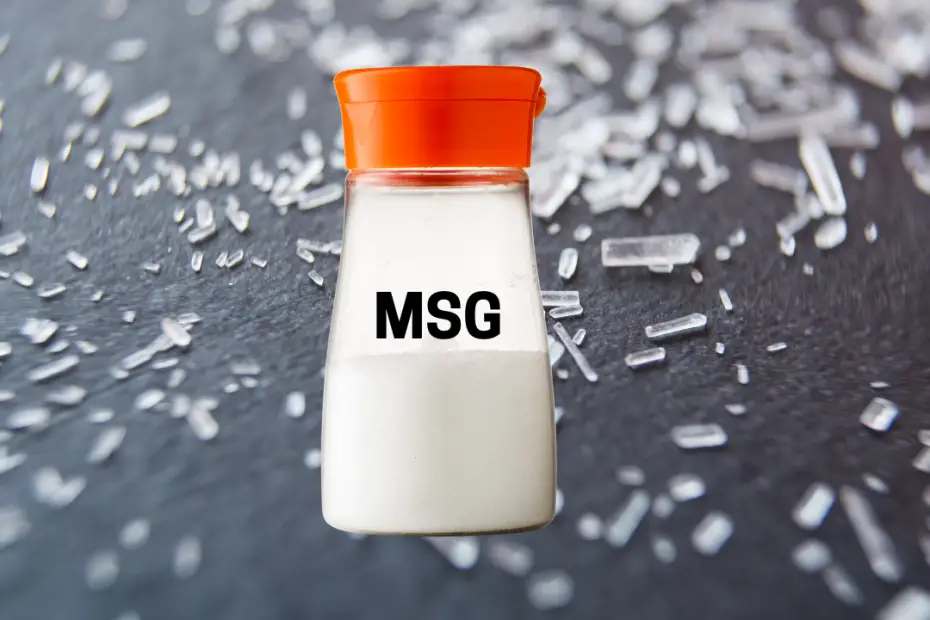Monosodium glutamate (MSG) is a flavor enhancer commonly used in cooking to bring out the umami taste in foods. While it’s widely used, there are many questions about its shelf life, proper storage, uses, and potential risks. This article aims to provide a comprehensive overview of MSG, addressing these aspects in detail.
Shelf Life of MSG: Does MSG Expire?
MSG is a highly stable compound. When stored properly in a cool, dry place, away from heat and sunlight, it can last for several years. If kept in its original, unopened packaging, MSG remains effective indefinitely. However, generally, once the package is opened, it’s recommended to use it within two years to ensure optimal flavor and potency.
The famous brand Ajinomoto ensures that their MSG remains stable and effective for five years or more from the date of manufacturing when stored in a cool, dry environment. Another brand, Ajinoriki, can be used for more than three years, but the company recommends using it within three years for optimal quality.
Proper Storage of MSG
To maintain the quality of MSG, it’s essential to store it correctly. Ensure that the container is tightly sealed after each use to prevent moisture from getting in, which could cause clumping. Store it in a pantry or cupboard, away from direct sunlight and sources of heat. Using an airtight container can further extend its shelf life and keep it free from contaminants.
How to Use MSG
MSG is used to enhance the flavor of a variety of dishes, from soups and stews to meats and vegetables. It works by intensifying the natural flavors of the food without adding a distinct taste of its own. When using MSG, a small amount goes a long way. Typically, about half a teaspoon per pound of meat or vegetables is sufficient. It’s best added during the cooking process to allow it to dissolve and distribute evenly.
Culinary Applications
MSG is a staple in many Asian cuisines but has also found its way into Western cooking. It’s commonly used in processed foods, such as snack foods, canned soups, and frozen dinners, due to its ability to enhance flavor and improve palatability. Chefs and home cooks alike use MSG to add depth to broths, sauces, and marinades.
Potential Health Risks
The safety of MSG has been a topic of debate for many years. Some individuals report sensitivity to MSG, experiencing symptoms such as headaches, sweating, and chest pain, collectively known as “Chinese Restaurant Syndrome” or MSG symptom complex. However, scientific studies have not conclusively proven that MSG is harmful to the general population (source: MedicalNewsToday).
Regulatory Stance on MSG
Health authorities, including the U.S. Food and Drug Administration (FDA) and the World Health Organization (WHO), consider MSG to be generally safe when consumed in typical amounts found in food. The FDA has classified MSG as “generally recognized as safe” (GRAS), and there are no restrictions on its use in food products.
MSG and Diet
While MSG itself is not inherently unhealthy, its presence in highly processed foods can be a marker for a diet high in sodium and low in nutritional value. Consuming large quantities of processed foods can contribute to health issues such as obesity, high blood pressure, and heart disease.
MSG and Obesity
Some studies suggest a link between high MSG consumption and obesity. One theory is that enhanced flavors may lead to overeating, as food becomes more palatable and harder to resist. However, more research is needed to fully understand this relationship and whether MSG directly contributes to weight gain.
MSG in Natural Foods
Interestingly, MSG is naturally present in many foods that are rich in umami, such as tomatoes, cheese, and mushrooms. These natural sources of MSG contribute to the savory taste that people enjoy, without the need for added MSG.
Alternatives to MSG
For those who prefer to avoid MSG, there are several alternatives that can enhance the umami flavor of dishes. Ingredients like soy sauce, miso, and Parmesan cheese can provide a similar taste profile. Additionally, using fresh herbs and spices can boost flavor without the need for MSG.
Can I Still Eat Expired MSG?
Technically, MSG does not expire in the same way other food products do. If stored properly, it remains safe to consume even past its best-by date. The effectiveness might decrease slightly over time, but it does not become harmful. However, it’s always best to check for signs of moisture or contamination before using older MSG.
Conclusion
In summary, MSG is a versatile and stable flavor enhancer with a long shelf life when stored properly. While it is generally considered safe by health authorities, some individuals may experience sensitivity. Moderation and mindful consumption, particularly of processed foods, are key to maintaining a balanced diet. Understanding how to use and store MSG effectively can help you make the most of this ingredient in your cooking.
